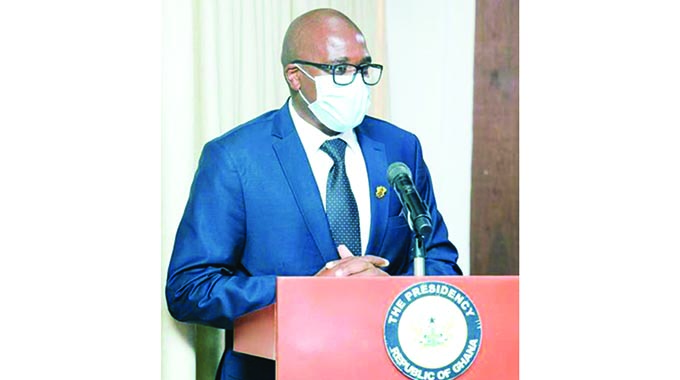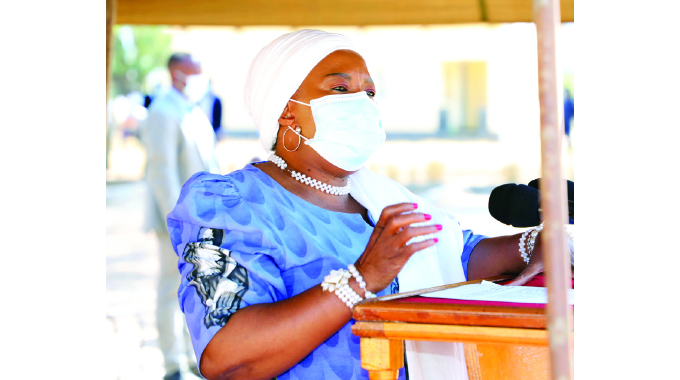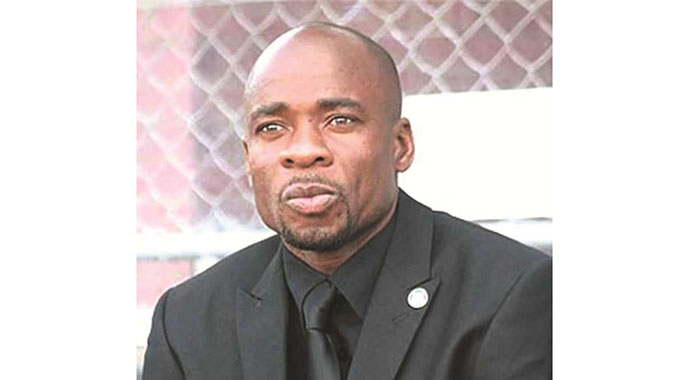We should stop celebrating mediocrity: Mutoya

Ellina Mhlanga Senior Sports Reporter
AS the curtain came down on the Tokyo 2020 Olympic Games yesterday, it’s time to reflect on the highs and lows from the showpiece for the African Union Sports Council (AUSC) Region Five countries.
It has not been an easy journey to the rescheduled Games due to the Covid-19 pandemic.
For the AUSC Region Five countries that participated at the Games, only three — South Africa, Namibia and Botswana — picked medals.
South Africa got three — one gold and two silver. Swimmer Tatjana Schoenmaker claimed gold and silver in the 200m breaststroke and 100m breaststroke respectively. Bianca Buitendag got silver in surfing.
Namibia picked one silver through Christine Mboma in the women’s 200m and Botswana claimed one bronze, in the men’s 4x400m relay.
The other seven AUSC Region Five countries — Angola, Eswatini, Lesotho, Malawi, Mozambique, Zambia and Zimbabwe – could not make it on the medals table.
AUSC Region Five chief executive, Stanley Mutoya, shared his views on the performance by the region’s representatives.
“The Region’s athletes have recorded credible performances under the circumstances. Covid-19 rendered 15 months of training and competition impossible due to various levels of lockdown.
“Their counterparts from elsewhere, who are endowed with resources and had access to vaccines earlier than them, were able to resume sport earlier.
“The results are there for all to see. It just tells us that we need to be more assertive in investing in local infrastructure and events to enhance athlete performance. When travel to Europe became difficult, our athletes failed to travel for competitions.
“Let us invest in credible local events which is a cheaper way to provide more competition and exposure to our athletes,” said Mutoya.
Expectations are always high for the athletes to qualify for the Olympics and get podium performances but sometimes they fall short.
The results from Tokyo show that there is need for introspection on how the different countries can improve going forward.
Mutoya says there is need to invest in athlete performance strategies, structures, systems and programmes.
“Our preoccupation must not be on the number of athletes qualifying. Our primary concern must be to establish appropriate systems that produce competitive athletes and promote high performance.
“There is no shortcut to sporting excellence. The only place where success comes before work is in the dictionary.
“If we invest in athlete performance strategies, structures, systems and programmes in what I call the three S+P model, the rest will fall in place. We need to be patient in doing the right things then results will follow.
“We rush athletes into competition too soon and most experience frustrations and burnout. We should stop celebrating mediocrity,” said Mutoya.
Most of the countries had representatives in individual sporting codes as team sports qualification to the Games remain low in the Region with South Africa fielding teams in men’s football, rugby sevens, hockey men and women as well as water polo men and women.
Zambia had the women’s football team and there was a women’s handball team from Angola. “There are two fundamental reasons. A contingent of 30 football players fights for only one medal while a team of four athletes has potential to win up to nine medals. So, it’s a pure cost benefit analysis call that leads to such a decision.
“Secondly, it’s the cost of preparing a team sport. It is more expensive to prepare a team in comparison to preparing individual athletes in terms of training fees, camping, kit, travel, accommodation and allowances.
Lastly, team sports qualifications are more complicated than most individual sports qualifications,” Mutoya said.
The AUSC Region Five chief executive conceded the outcome from the Tokyo Games do not reflect the abundant talent in the Region.
“Definitely not. I believe we have abundance of talent.
“We wouldn’t be boasting of athletes in several top European leagues if we didn’t have talent. We just don’t know what to do with that talent,” said Mutoya.
Commenting on Zimbabwe’s performance, the former Zimbabwe Olympic Committee chief executive said investment in sport is the way to go if the country is to witness better results.
“I think the athletes did the best they could. Donata (Katai) made us proud. She has a very bright future. Ngoni Makusha also made a strong case. Well done to him. We need to commend these athletes and their coaches for a brave show under the circumstances.
“However, our eyes should not be fixed on medals. Our primary focus should be on investment into sport. Excellence does not come cheap. We need a serious relook at our priorities as a country on what exactly we want to achieve.
“There is no sporting success that comes without investment. For as long as our Sports Associations remain amateur run by volunteer administrators from their personal resources, we need to invest in big screen television sets and comfortable couches from which to watch other countries compete at major international competitions,” said Mutoya.
Zimbabwe has not won a medal in the last three editions — at the 2012 London Games, 2016 Rio Games and 2020 Tokyo Games.








Comments